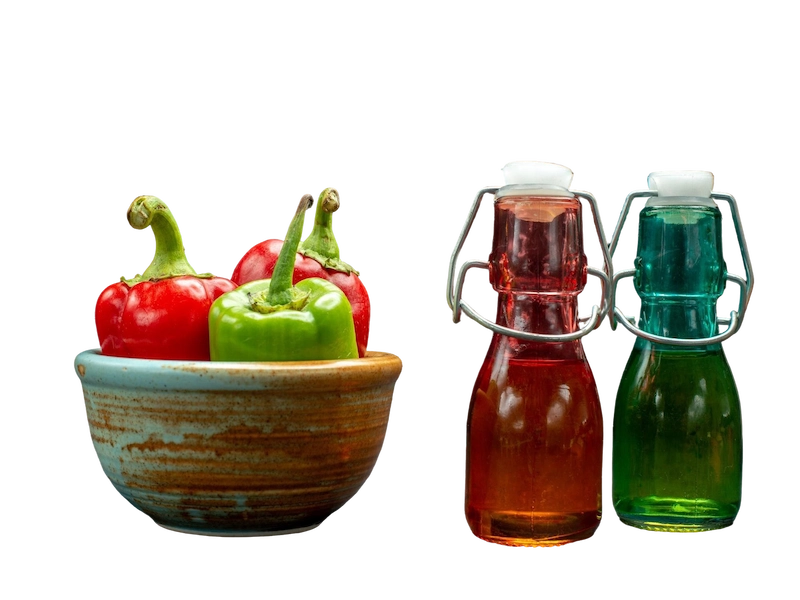Halal Certification for Natural vs. Artificial Flavors
The private label and contract manufacturing industry is experiencing unprecedented growth, with the global halal market reaching $2.3 trillion. For contract manufacturers halal certification

Halal Certification for Natural & Artificial Flavors
Ensure Your Flavors Meet Islamic Standards
Companies that manufacture products using natural or artificial flavors would need halal certification for the Muslim community. Muslim consumers should have information that the flavors they consume do not have ingredients that are prohibited in Islam, and they must conform to Islamic laws.
Our service helps food and ingredient manufacturers meet these standards through a reliable certification process.
Allah (SWT) provides clear guidance regarding what is permissible to consume:
“O mankind, eat from whatever is on earth [that is] lawful and good and do not follow the footsteps of Satan. Indeed, he is to you a clear enemy.” (Al-Quran 2:168)
Extraction Methods and Islamic Compliance for Flavors
The method used to extract natural artificial flavors significantly impacts their halal status. The Prophet (ﷺ) emphasized the importance of the process, not just the source, in determining permissibility.
Permissible Extraction Methods:
- Water-based extraction
- Steam distillation
- Cold pressing
- Mechanical extraction without prohibited solvents
Problematic Extraction Methods:
- Alcohol-based extraction results in high alcohol content
- Use of non-halal animal-derived enzymes
- Processing with equipment contaminated by harmful substances
Alcohol Limits and Usage in Natural Flavors
Alcohol is sometimes used in the production of natural flavors, but its use must follow Islamic guidelines. We help ensure that any alcohol used meets halal standards based on Islamic teachings and industry research.
Permissible Alcohol Levels
- Up to 0.5%: Generally accepted when used as a processing aid or flavor carrier, especially if it evaporates during production
- Up to 0.1%: Required in some countries and by stricter certification bodies
- Above 0.5%: Considered doubtful or non-permissible in most cases
- Any intoxicating amount: Not allowed under any circumstance
Purpose and Intention Matter
Islamic law also considers the reason why alcohol is used. If the intention is halal and necessary, and the amount used is small and properly processed, it may be allowed. We evaluate the use of alcohol based on its purpose:
Acceptable Uses
- As a solvent that evaporates during flavor extraction
- As a carrier that helps preserve flavor without remaining in the final product
- As a processing aid when no halal alternative is available
We review both the alcohol content and its intended use during certification to ensure full compliance with halal standards.
What Halal Watch Offers:
- Natural Flavor Halal Certification
We certify flavors made from fruits, vegetables, herbs, and animal sources. This includes:
- Verifying the source of plant-based ingredients
- In order to get natural flavors from animals, confirming halal slaughter for animal-derived ingredients is necessary.
- Reviewing extraction methods like steam or water-based processes
- Ensuring alcohol levels stay within accepted halal limits (usually up to 0.5%)
- Artificial Flavor Halal Certification
We evaluate synthetic flavors based on:
- Source and composition of chemical ingredients
- Whether alcohol is used and at what level
- Risk of cross-contamination during production
- Whether transformation (istihaalah) applies under Islamic law
- Alcohol Content Testing
Alcohol is sometimes used to carry or process flavors. We:
- Test alcohol levels using advanced lab methods
- Confirm whether it evaporates or transforms during production
- Make sure the intention behind its use aligns with Islamic rulings
- Facility Inspection and Process Review
We assess:
- Cleanliness and separation of halal and non-halal production lines
- Staff training in halal handling
- Proper storage and labeling of ingredients
- Ingredient and Supply Chain Documentation
We trace the whole journey of your flavors:
- Audit suppliers and collect halal certificates
- Confirm alcohol and animal ingredient sources
- Provide clear records of batch testing and final results
Why Choose Halal Watch?
We are here for your halal compliant flavor solutions:
- We use certified labs for accurate alcohol testing
- We help businesses meet export and regulatory needs
- Our team includes halal scholars and technical experts
- We support clean-label, health-focused, and ethical production goals
Who Do We Serve?
- Food and beverage companies
- Flavor manufacturers and suppliers
- Exporters to halal markets
- Brands offering natural or health-conscious products
industries we serve
Is Your Product Ready for Halal Certification?
Get a Free Expert Evaluation Today
Discover if your ingredients, processes, and facilities align with Islamic dietary laws.
Start your Free Halal Compliance Check now — no obligation!

Certification Process
The halal certification in Natural vs. Artificial Flavors can be done through the following process:

Make Contact
Reach out to begin halal certification for natural and artificial flavors.

accept proposal
Review and approve the certification plan tailored to your products.

down payment
Confirm your application by submitting the initial payment.

Submit docs
Provide ingredient details, formulations, and supporting documents.

audit
Our experts review sourcing and production to ensure halal compliance.

halal certify
Receive your official halal certificate for natural and artificial flavors.
FAQs
What’s the difference between 0.1% and 0.5% alcohol limits in halal flavors?
Are natural flavors automatically halal compared to artificial ones?
How can consumers verify if flavors in processed foods are halal?
Can vanilla extract be halal if it contains alcohol?
Testimonials
Posted onTrustindex verifies that the original source of the review is Google. I love it! It’s so helpful and easy to keep track of things we are consuming and making sure everything is halal for us Muslim brother and sisters!Posted onTrustindex verifies that the original source of the review is Google. Great and professional organization! Very respectful responsive and really do their thoroughly. We been dealing with them for few years and it has been a great experiencePosted onTrustindex verifies that the original source of the review is Google. Great customer services!!Posted onTrustindex verifies that the original source of the review is Google. What stands out most about Halal Watch World is its unwavering commitment to integrity and excellence. I’ve seen firsthand how dedicated the company is to providing clients with the best service and ensuring they meet the highest halal standards. If you’re looking for a reliable and trustworthy partner for your halal certification needs, Halal Watch World is the clear choice. It’s a company that truly values quality, professionalism, and making a positive impact in the industry.Posted onTrustindex verifies that the original source of the review is Google. A compassionate , conscientious company. Constantly striving to meet the needs of the community. We highly recommend them.
